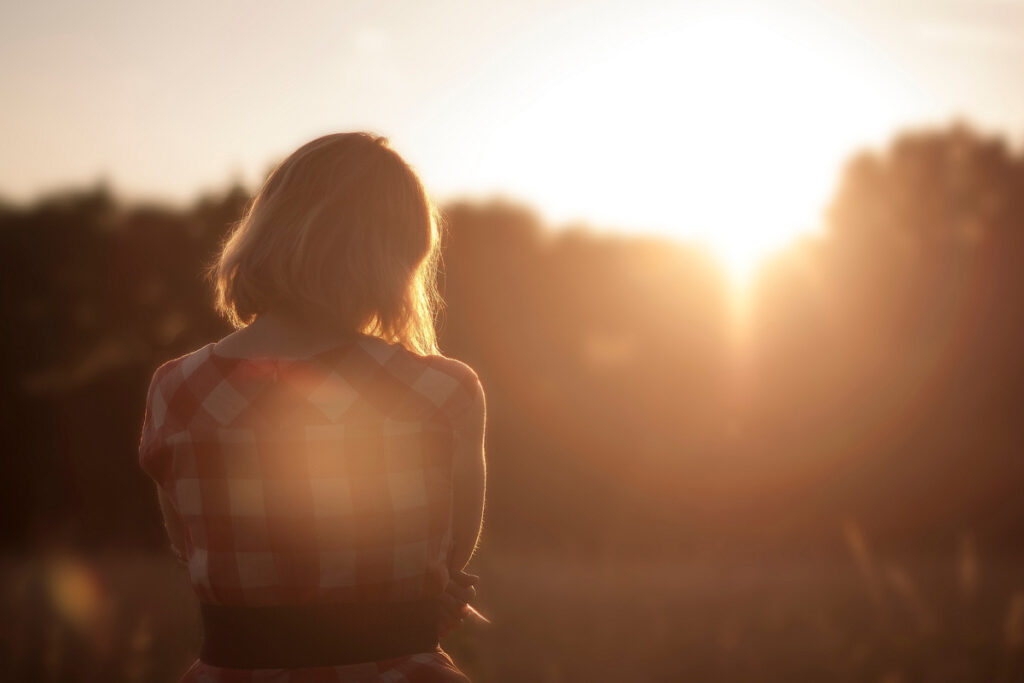Secondary Losses in Grief
By Lisa Woodburn

When we encounter grief and loss we primarily hear of the main loss — the person who died. What we don’t often hear about are the secondary losses. I didn’t even know what that meant until I experienced it. Secondary losses are the people and things we lose after our spouse dies or situations you have to deal with related to the death. These include co-workers of our spouse, or a business you owned together, friends that were more his than yours, his family, children, people you shared hobbies or activities with, neighbors, your friends, your coworkers, selling your house, changing jobs, etc.
The people we counted on to be there for us, who are now uncomfortable because our spouse has died, disappear. Maybe they don’t know what to say or can’t deal with our pain. Maybe they can’t deal with their own feelings of loss and pain. Sometimes they bail right away, sometimes it happens over time. In the end, they go, usually without an explanation, and we are left alone with our compounded grief.
I became a widow in May 2020 at age 55. My husband of 35 years became ill in February 2020. We thought it was a stomach flu, turned out to be Gastric Esophageal Junction GEJ Cancer. Testing in March confirmed it was Stage 4 and terminal. During a procedure in April to implant a feeding tube, he aspirated — all of his stomach contents regurgitated into his lungs. He was put on life support, including a ventilator. They tried taking it out three times — the only times I was able to visit with him during the COVID restrictions, for about 15 minutes each time. On May 4 he was stable enough to be moved out of the ICU and prepared to come home for chemo and radiation treatments. The doctor allowed me to visit with him for 7.5 hours on Thursday, May 7, and he unexpectedly died from heart failure at 10:00 the next morning, alone.
In my case, the secondary losses were my children ghosting me and having to deal with Mike’s illness and death during the early COVID pandemic. Much of my grief became anger, not at Mike, but at everyone else for abandoning me at the time I needed help.
We have four adult children who live in other states. Only one daughter was able to commit to coming and helping me with Mike during his illness and she stayed for a few weeks after he passed. Our youngest came for a weekend at the beginning of Mike’s illness and then the weekend after he died, helping with the autopsy and cremation arrangements before she left. The other two, my son and my eldest daughter, barely spoke with me on the phone. Mike’s mom and one of his brothers lived on the East Coast and had told Mike they wouldn’t be coming to see him when he first told them his diagnosis, so I didn’t expect much support from them. I would like to say this was due to the COVID pandemic, and it certainly was an influence during the whole time, but it wasn’t just that. Our family had been under a strain due to some issues that had happened in 2017. I hoped that Mike’s illness might bring us together again. Unfortunately, his death had the opposite effect.
Grief affects people in different ways. I was under the delusion that it was going to be a Hallmark movie — all of us coming together to share our sadness and remember how much we loved each other and Mike. That is not what happened. We all went into shock. His illness and death were completely unexpected. There had been no time to process any of it.
Because of the COVID restrictions we were not able to have any kind of funeral or celebration of life. Family, friends, and coworkers were spread literally all over the country anyway, so where would we hold it? Mike was cremated after we donated his brain to science research. While two of our daughters and I initially came together and forgave each other for the pain of the past couple of years, within a few weeks they both had returned home and ghosted me too. My mother-in-law focused her pain from the loss of her son on me. Now, she and I didn’t have a great relationship before his illness, so some of it was to be expected, but what I didn’t expect was that his whole family supported her. I became a pariah overnight.
My mom, who had lived with me and Mike since 2009 when my dad passed, had been in Florida since December 2019 visiting my brothers. She got caught there during COVID and missed Mike’s illness and death completely. She couldn’t safely come back to California until September 2020, four months after his death. Within a month of Mike’s passing, I was totally cut off from any family support. There were a couple of friends on the East Coast who helped support me over the phone, but that came with its own challenges.
Since I didn’t have family or local friends, I turned to Facebook. I created a memorial page for Mike, and I posted there a lot. I “talked” to him like I did when he was alive. And that’s how I started to work through the grief and accumulated losses. Well, that and my therapist.
I found my local Modern Widows Club community on Meetup. They were the only group still wanting to meet — and it was safe on Zoom. They saved me. My therapist was great, but she wasn’t a widow and didn’t really understand what I was going through. She gave me the tools but I needed understanding. I needed to know I wasn’t crazy and things would get better. I needed to hear from other women who had walked this path.
I needed hope and they gave it to me. Freedom from judgment and platitudes that did more harm than good. Freedom to feel the feels when they happened and not fall down the rabbit hole of despair when missing him became too much to bear. Freedom to find a new life without Mike and be a new me without losing the old me or memories of him and our life together. Freedom to move forward and continue living.

